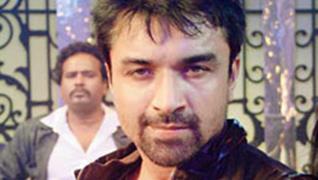Producer writer Mahesh Bhatt does not believe in the relevance of God because during his childhood his fundamental desires remained unfulfilled.
He says, "I lost the relevance of God in my life in my childhood days only. I always wanted my father to stay with me, but when that didn't happen I lost faith.`
The filmmaker was participating in the just concluded Indian Languages Festival, which began at the India Habitat Centre in Delhi.
Sharing a flash back moment, Mahesh said, "I got into LSD and drugs when my films were not working. It was later when I met U G Krishnamurthy, who made me realise that society has its parameters and we have to play in its boundaries.
"I found some meaningful existence after 'Saransh' which looked at an elderly couple who had lost their son. I along with others reexamined the theory of reincarnation," he added.
According to Bhatt, the film industry's approach had also turned hostile in the 1990s.
"It was post Godhra riots when the film industry's narrative of 'India' changed into the version of India that is talked about today. It wasn't easy though; I had to face many hassles for making'Zakhm', my last film as a director," he shared.
"The film locked horns with right fundamentalist ideology. The censor board told me that I needed clearance from the political bosses. The film was later referred to the home ministry and I was told to replace the saffron head bands with another colour for an 'obvious relevance'.
"I had to use digital technology and it cost me more than forty lakh rupees for a low budget film but the film worked and later it bagged awards.
"I was amazed at the existing hypocrisy around me where at one time they thought that it was irrelevant and had 'inappropriate' content and at the other time they awarded it because it was well received by the audience. That's how it works.!" Bhatt said.
Mahesh Bhatt Lost relevance of God during his Childhood
Tuesday, October 29, 2013 11:23 IST




















